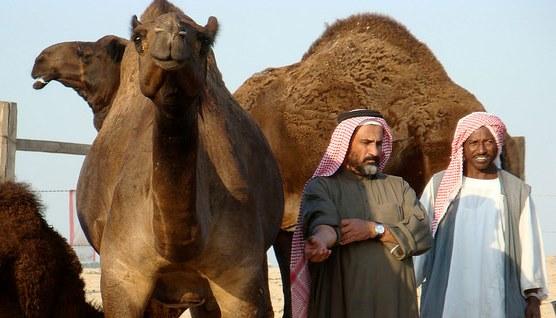A cluster of MERS-CoV cases in Buraydah has grown by 3 to 17 cases in just 1 week, and the Saudi Ministry of Health (MOH) confirmed 2 other cases elsewhere, according to an update today.
In addition, the World Health Organization (WHO), in separate reports, detailed seven MERS-CoV (Middle East respiratory syndrome coronavirus) cases from Saudi Arabia from February and noted the death of a recent patient in Qatar.
Buraydah cluster grows
The new cases in Buraydah reported today all involve people in their 20s, one of whom is a healthcare worker, while the two cases elsewhere in Saudi Arabia both involved camel contact. All five are Saudi nationals, the MOH noted.
The health worker, a 26-year-old man, contracted the disease in a healthcare setting, the MOH said. He is listed in stable condition.
The other two cases in Buraydah involved contact with another MERS-CoV patient. The patient who died was a 29-year-old man. The other patient is a 22-year-old woman who is hospitalized in critical condition.
The MOH also noted that a previously reported MERS patient in the city has died. He is a 23-year-old man whose case was confirmed by the agency on Mar 5, at which time he was in critical condition. He had preexisting disease, the MOH said today.
Buraydah has now had 17 confirmed MERS cases since Mar 3, including 6 deaths. Most have been linked to healthcare settings. The city is in the north-central part of the country.
Other Saudi patients had camel contact
The two other cases confirmed by the MOH today involve a 62-year-old man in Jubail and a75-year-old man in Taif. Jubail is in the northeast and Taif in the southwest.
The man in Jubail is listed in stable condition, while the man in Taif is in critical condition. Neither is a health worker, but both had recent contact with camels.
The Saudi MOH also reported today that a 30-year-old male expatriate in Riyadh has recovered from his infection.
Saudi Arabia has already surpassed its February MERS-CoV totals. Last month the MOH reported 20 cases, and so far this month it has confirmed 25 cases, 21 of which have involved men. Since the outbreak began in 2012, the country has had 1,335 cases, 564 deaths, and 748 recoveries. Twenty-three patients are still undergoing treatment, 11 of them in Buraydah.
WHO details 7 Saudi cases
The first WHO report today describes seven patients who tested positive for MERS-CoV in the second half of February. Three are in critical condition, three are stable, and one—the only healthcare worker—is asymptomatic and in home isolation. One of the patients had recent camel contact.
Those in critical condition are a 56-year-old man from Ha'il, a 53-year-old man in Abha, and a 24-year-old man in Riyadh. Those in stable condition—all men—are from Najran (60 years old), Afif (74), and Riyadh (53). The 74-year-old owns camels and has a history of frequent contact with them and of drinking their raw milk, the WHO noted.
The healthcare worker is a 28-year-old woman in Al-Kharj who was identified through contract tracing of a previously lab-confirmed patient. She tested positive for MERS-CoV on Feb 18 but remains asymptomatic in home isolation.
Death in Qatar
The MERS death in Qatar noted in the second WHO statement today also involved frequent camel contact. His case was first reported by local media on Feb 21.
The 66-year-old Qatar man first developed symptoms on Feb 18 while in Saudi Arabia, where he had stayed about 2 months. He sought care in the El-Hassa region of Saudi Arabia the next day and was treated for his symptoms and released.
On Feb 20 his condition deteriorated, and he was taken by ambulance to a hospital in Doha, Qatar. The man, a heavy smoker who had other medical conditions, tested positive on Feb 21. He died on Mar 7.
The man owned a camel barn in Saudi Arabia and frequently visited it. As with the Saudi man highlighted in the other WHO update, the Qatari man had frequent contact with camels and often drank their raw milk.
See also:
Mar 10 Saudi MOH update
Mar 10 WHO statement on Saudi cases
Mar 10 WHO statement on Qatari case






















